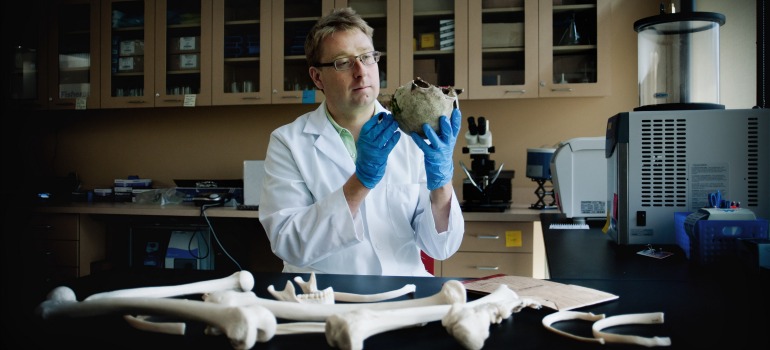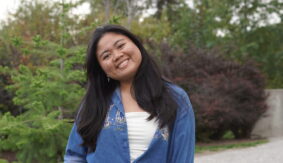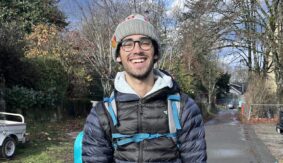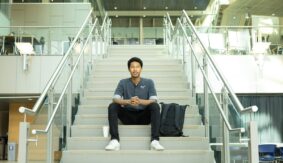
UBC archeologists have helped to uncover the last known group of hunter-gatherers in Central Europe.
Working with international researchers, the UBC team used advanced isotope analysis techniques to determine that a group of hunter-gatherers retained their way of life 2,000 years longer than previously thought.
“Until now, scientists believed that hunter-gathering cultures disappeared in Central Europe almost immediately after farming began around 5,000 B.C.,” says Olaf Nehlich, a post-doctoral researcher in UBC’s Dept. of Anthropology. “These new findings show that hunter-gatherers continued to exist alongside farming societies for a much longer period of time.”
Nehlich and UBC Anthropology Prof. Michael Richards conducted the isotope analysis that identifies that the two different groups of homo sapiens had differing diets, indicative of their hunter-gathering and farming lifestyles. UBC has the only lab in Canada—and one of a handful around the globe— equipped for archeological research using this combination of isotopes.
The study focused on preserved Stone Age specimens found in the ancient Blätterhöhle archaeological site in Hagen, Germany. The UBC researchers analyzed sulfur, nitrogen and carbon isotopes in the specimens’ bones and teeth while a team lead by Ruth Bollongino of Johannes Gutenberg University of Mainz conducted genetic testing, which found surprisingly little cross-mating between the two cultural groups.
According to the researchers, further study is needed to determine the social relationships between the two groups. “How these two groups of homo sapiens interacted is still very much a mystery,” says Nehlich. “Our findings suggest they lived separately, and kept to each other, but at this point, we have no idea if they were friends or foes.”
The study, 2000 Years of Parallel Societies in Stone Age Central Europe, was published today in Science Express journal.
Background
Prof. Michael Richards’ lab, part of the UBC Museum of Anthropology’s $55.5-million expansion project, was made possible with support from the Canada Foundation for Innovation. The isotope lab is part of UBC’s Laboratory of Archaeology.
Learn more about UBC’s Dept. of Anthropology. Richards is also a researcher at the Max Plank Institute for Evolutionary Anthropology in Leipzig, Germany.







